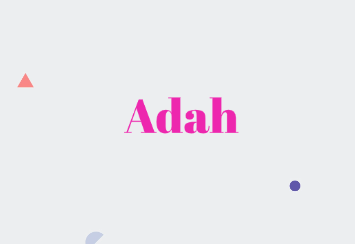Choosing a baby name is a significant decision for parents, often reflecting their hopes, beliefs, and cultural heritage. One name that stands out for its deep meaning, rich history, and widespread usage across cultures is Abdullah. This article explores the meaning, origin, and cultural significance of the name Abdullah, along with why it continues to be a popular choice for parents around the world.
Meaning of Abdullah
The name Abdullah is of Arabic origin, meaning “Servant of Allah” or “Servant of God.” It is derived from two Arabic words: “‘Abd” (عبد), meaning servant or worshipper, and “Allah” (الله), the Arabic word for God. This profound meaning reflects devotion, humility, and a close relationship with the divine, making it a cherished name in Islamic tradition.
Religious and Historical Significance
The name Abdullah holds great religious significance in Islam. It was the name of the father of the Prophet Muhammad (peace be upon him). This historical connection adds to the name’s appeal and reverence among Muslim families. Additionally, the name is mentioned in Islamic scriptures and is associated with piety and righteousness.
The name also resonates with followers of other Abrahamic faiths. In its essence, the name embodies a universal recognition of servitude and gratitude toward a higher power, making it a bridge between cultures and religions.
Popularity Across the Globe
Abdullah is a widely recognized name, particularly in Muslim-majority countries such as Saudi Arabia, Pakistan, and Indonesia. However, its use is not limited to these regions. Due to migration and globalization, Abdullah is also a familiar name in Western countries, where it has become a symbol of cultural diversity and religious identity.
In many cultures, the name Abdullah is paired with other names to form meaningful combinations. For example, names like “Abdullah Muhammad” or “Abdullah Ahmed” are common, reflecting both devotion to God and admiration for significant Islamic figures.
Pronunciation and Variations
Abdullah is pronounced as “Ab-dul-lah” or “Ab-doo-lah” depending on regional accents. Variations of the name exist in different languages and cultures:
- In Turkish: Âbdullah
- In Persian: Abdollah
- In Urdu: عبداللہ
- In Malay: Abdillah
Each variation retains the core meaning and reverence of the original name, adapting slightly to linguistic preferences.
Why Choose the Name Abdullah?
Timeless Appeal: Abdullah is a name that transcends generations, maintaining its relevance and dignity across centuries.
Positive Connotations: The name reflects qualities like humility, devotion, and spiritual awareness, characteristics that many parents wish to instill in their children.
Cultural Connection: Naming a child Abdullah can honor one’s cultural and religious heritage, creating a lasting bond with family traditions.
Global Recognition: Abdullah is easy to pronounce and widely understood, making it a versatile choice for families in multicultural environments.
Famous Personalities Named Abdullah
Many notable figures throughout history have borne the name Abdullah, contributing to its prominence:
- King Abdullah II of Jordan: A modern-day monarch known for his leadership and diplomacy.
- Sheikh Abdullah bin Zayed Al Nahyan: A prominent Emirati politician.
- Abdullah ibn Abbas: A revered Islamic scholar and companion of the Prophet Muhammad.
These individuals exemplify the values associated with the name, from wisdom to leadership and faith.
Modern Usage and Trends
In recent years, the name Abdullah has gained popularity beyond religious circles, as parents appreciate its profound meaning and historical roots. The name’s simplicity and elegance make it a timeless choice, appealing to both traditional and modern sensibilities.






